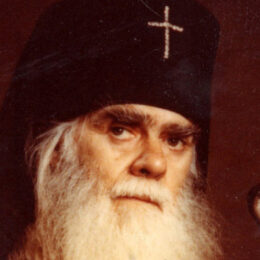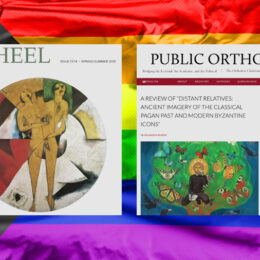The Orlando Sentinal (free registration required)
Debbie Barr, December 9, 2004
MAITLAND — Some might consider becoming a priest of the Greek Orthodox Church somewhat unorthodox if you are neither Greek nor born into Orthodoxy.
For the Rev. James Berends [Fr. Jim, as most call him], who was ordained in July as a priest in the Greek Orthodox Church, it was a natural, if not typical, progression.
Berends, 47, serves at the Holy Trinity Greek Orthodox Church in Maitland, where he assists Senior Rev. Dean Gigicos in overseeing a congregation of about 500 families, predominantly from Orange and Seminole counties.
Berends said his journey to Orthodoxy and the priesthood was not a lightning bolt of revelation, but more of a gravitation.
“It always felt like just a nudge for me; it never felt like a huge jump,” he said.
Berends, who lives in Lake Mary, was born the son of a Baptist minister in Grand Rapids, Mich. He knew early on that he didn’t consider himself a Baptist, but he still felt drawn to Christianity.
“I knew it [my religion] was going to be Christian, I just didn’t know where it was all going to lead,” he said.
Read the entire article on the Orlando Sentinel website.




hello, I accidently found this website last month and I find it very fasinating. The above post made me wonder what the Orthodox Church’s perspective is on its lay members attending Catholic (in union with the Pope) masses/liturgies, and its general veiw of the Catholic Church (under The Pope). I myself am a (Roman Rite) Catholic, but I used to be a parishoner of a Byzantine (Rite) Catholic Church for a few years- to my knowledge their practice of the sacrements and traditions they hold are identical to Orthodox practice. To my understanding both Catholic and Orthodox Christians consider themselves and each other to be part of The One Apostolic Church that Christ made, but that only one of the two branches are “true” in the sense of the way Christ wanted it- the doctrinal differences between them being the authority of bishops/patriarchs verses the authority of the Pope, and somthing about the Holy Spirit- are these the only differences? Would apreciate any info from someone who knows more about it. Thanks.
Justin,
This site discusses social and political issues moreso than the theological differences between churches. Try this page: http://groups.yahoo.com/group/orthodox-convert/ to get an answer to your question. If they can’t answer it, they can direct you where to go.